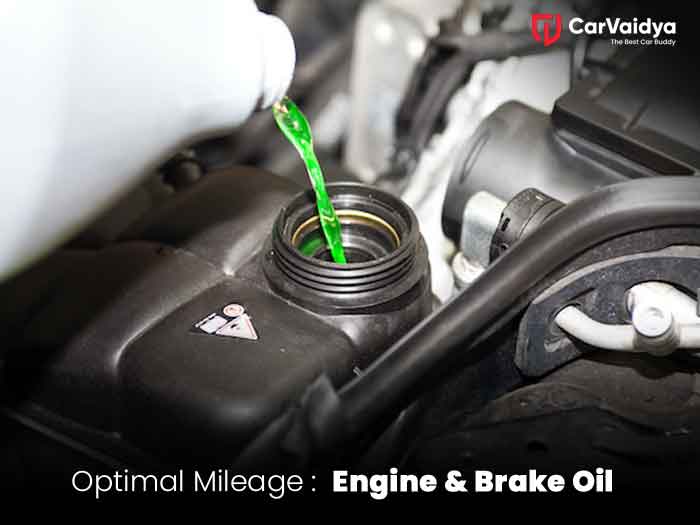Maintaining a regular schedule for changing engine and brake oil is crucial for the longevity and optimal performance of your car. In this article, we will delve into the recommended mileage intervals for changing engine and brake oil, providing valuable insights to ensure your vehicle's smooth operation.
Engine Oil Change Intervals
Engine oil plays a pivotal role in lubricating the engine components, reducing friction, and ensuring proper heat dissipation. The recommended interval for changing engine oil varies depending on factors such as the type of oil used, driving conditions, and the make and model of the car.
Conventional Oil
If your car utilizes conventional oil, it is generally advisable to change the engine oil every 3,000 to 5,000 miles. Regular maintenance within this mileage range helps prevent engine wear and maintains optimal engine cleanliness.
Synthetic Oil
Cars equipped with synthetic oil can often go longer between oil changes. The recommended interval for synthetic oil is typically around 7,500 to 10,000 miles. However, it's essential to consult your car's manual for manufacturer-specific recommendations.
Brake Oil Change Intervals
Brake oil, also known as brake fluid, is critical for ensuring proper brake system functionality. Over time, brake fluid can accumulate moisture, leading to reduced brake performance. Therefore, it is essential to adhere to recommended intervals for changing brake oil.
Typical Intervals
Brake oil change intervals generally range from 20,000 to 45,000 miles. However, it's crucial to consider your driving habits and the specific recommendations outlined in your car's manual. Heavy stop-and-go city driving may necessitate more frequent changes compared to highway driving.
Signs of Contaminated Brake Fluid
Keeping an eye out for signs of contaminated brake fluid is crucial. If you notice a decrease in braking efficiency, a spongy brake pedal, or a darkening of the brake fluid color, it's advisable to have the brake oil changed promptly.
Factors Influencing Change Intervals
Several factors can influence the frequency at which you should change engine and brake oil. These factors include.
Driving Conditions
Vehicles driven in severe conditions, such as extreme temperatures, heavy traffic, or frequent short trips, may require more frequent oil changes. Severe conditions can lead to increased engine stress and accelerated brake fluid degradation.
Manufacturer Recommendations
Always refer to your car's manual for manufacturer-specific guidelines on oil change intervals. Manufacturers may provide different recommendations based on the type of oil and the specific engine requirements.
Oil Qualit
The quality of the oil used also plays a significant role in determining change intervals. High-quality synthetic oils often offer better longevity and performance compared to conventional oils.
Conclusion
Regular maintenance, including timely changes of engine and brake oil, is key to preserving your car's performance and ensuring its longevity. By understanding the recommended mileage intervals and considering various influencing factors, you can make informed decisions about when to change engine and brake oil for your specific vehicle. Always consult your car's manual and, when in doubt, seek advice from automotive professionals to keep your car running smoothly mile after mile.
You Can Read Some Other Articles Also
Mistakes Can Damage The Car Battery Before Time
Early Discoloration Of Car Engine Oil
Safety Parameters While Driving In Foggy Conditions


0 Comments